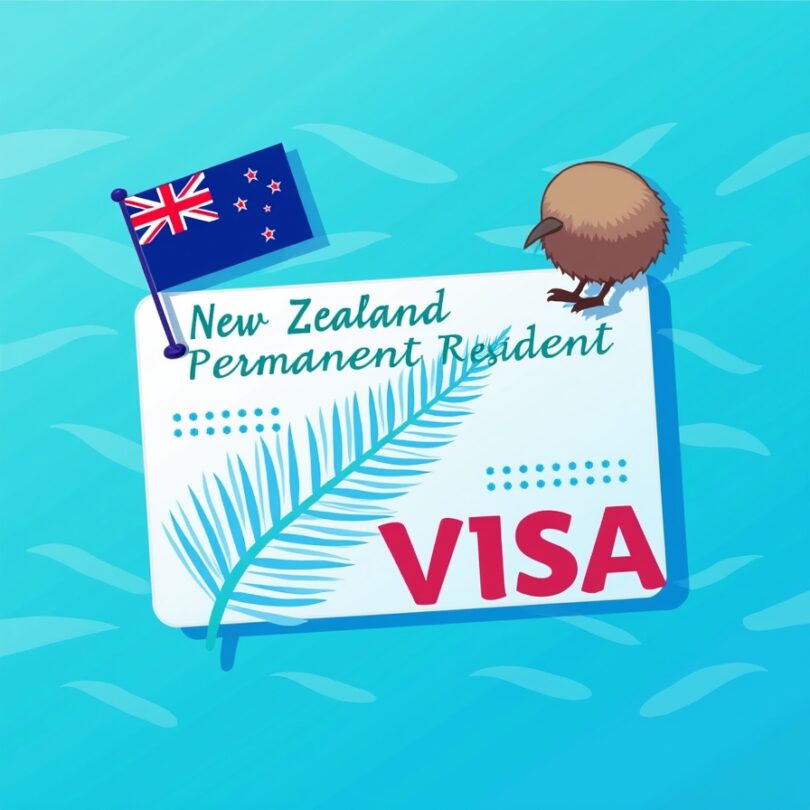New Zealand is well-known for its high quality of life, stunning scenery, robust healthcare, distinctive structures, and fascinating community. In 2025, several talented professionals, business visionaries, and family vagrants seek to make New Zealand their permanent location. The Permanent residence visa provides a prospect to settle, get employed, and ponder in New Zealand permanently, with a route to citizenship after gathering specific residency measures.
This directly provides a comprehensive structure of New Zealand Permanent resident readiness, discussing the important visa classes, eligibility measures, step-by-step request techniques, and hints to help planned travelers explore the structure effectively.
ALSO SEE: How To Move To the Netherlands Without a Job 2025
MEANING OF THE NEW ZEALAND PR
New Zealand permanent residency grants holders the validity to settle permanently in New Zealand. Permanent resident visa holders enjoy all the advantages of citizenship. This includes obtaining an open administration, healthcare, and education. Hence, they are not eligible to vote in federal elections. The permanent resident visa could be a well-known turning point for people seeking to live in New Zealand. It is commonly awarded to individuals who have added to the nation’s economy, family life, and culture via skill, business impulse, or family relationships.
ROUTES TO PERMANENT RESIDENCY
There are some routes to obtaining permanent residency in New Zealand, each providing for different classes of migrants:
- Skilled Transient Category: For individuals with skills, capacities, and job engagement that satisfy New Zealand’s monetary demands.
- Residence from employment: For transitory job visa holders who have indicated their ability to add to New Zealand’s labor force and desire to transition to permanent residency.
- Family category: For spouses, kids, or other relatives of New Zealand nationals or permanent resident holders.
- Investor and business visionary categories: For people ready to develop crucial financial beliefs or start a business in New Zealand.
- Other skilled categories are based on sponsorship routes, which are pointed out for individuals demanding a guarantee or people with unique events.
Every route has its own group of measures, patterns, and durations, making it basic for applicants to choose the path that best suits their profile and objectives.
ELIGIBILITY MEASURES FOR NEW ZEALAND PERMANENT RESIDENCY
While certain measures are modified by visa classification, regular demands for New Zealand Permanent Residency commonly comprise:
- Health: Applicants are required to satisfy health policies to ensure they will not stress New Zealand’s health structure. This involves whole-body tests.
- Conduct: Applicants must demonstrate good conduct, which often means providing police clearance from any country where they have lived.
- Age: While there is no stringent age limitation, younger applicants possess the highest prospect of success, mainly lower than the Skilled Nomad category, as age is a major focus.
- English language skill: Applicants are required to demonstrate good English skills, which is typically assessed via standardized examinations such as TOEFL or IELTS or via evidence of working in an English-speaking setting.
APPLICATION PROCEDURE FOR NEW ZEALAND PR
Observe these stages below to obtain permanent resident status:
Step one: Determine the best route
- Self-evaluation: Begin by evaluating your skills, abilities, job experience, and personal circumstances to determine which permanent resident route is best for you.
- Consultation: Consider seeking advice from an approved immigration advisor or legal adviser to ensure you choose the ideal program and meet all the conditions.
Step two: Provide an Expression of Interest (EOI)
For routes like the skilled transient category:
- Online presentation: Expression of Interests is often online via the Immigration New Zealand portal.
- Offer correct details: Ensure that all points of interest regarding skills, job records, and English proficiency are truly accounted for.
- EOI determination: If your Expression of Interest satisfies the needed cap, you will be selected to make an application for residency.
Step three: Gather accompanying documents
When you have been invited to apply:
- Evidence of Identity: A significant foreign ID and other documentation are needed for identification.
- Academic credentials and job histories: Special reports and verified copies of credentials, identifications, and business histories.
- English language exams: Official scores from identified examinations are needed.
- Health and conduct certificates: Medical tests and police certificates are required to be acquired.
Step four: Submit the PR application
- Fill out the application form: Complete all parts of the PR request form correctly.
- Reimburse the request fee: Costs vary based on the visa classification and the number of applicants attached to the application.
- Present online or by mail: Depending on your visa class’s specific information, applications may be presented online or offline.
Step five: application interview and appraisal
- Evaluation handle: Immigration New Zealand will audit your application, verify your details, and request additional details.
- Interview: In some cases, you may be requested for an interview or need to offer a supporting explanation of your application information.
- Judgment: The processing duration can be adjusted; however, successful applicants will obtain notification of their permanent residency status.
Step six: after authorization
- Visa permit: Once approved, you will obtain a permanent visa, which authorizes you to settle, get employed, and live in New Zealand permanently.
- Maintain residency devotion: It is ideal to understand that maintaining your permanent resident status demands specific residency devotion.







